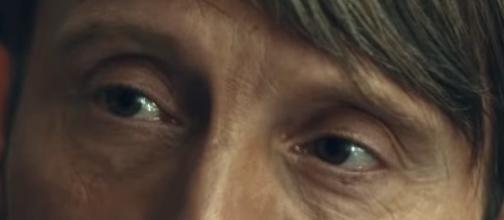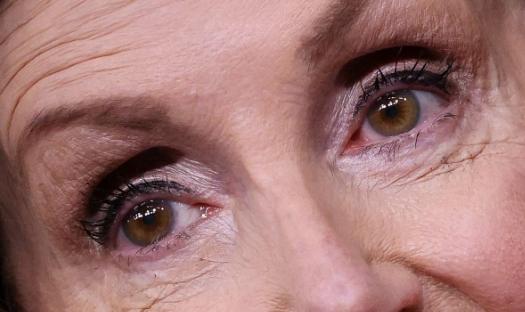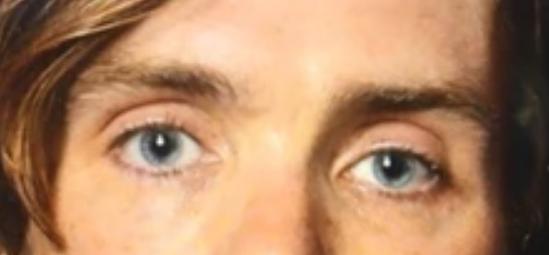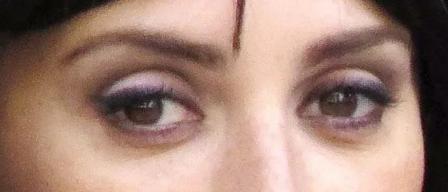As a medical condition this is called "drooping eyelids" or "ptosis".
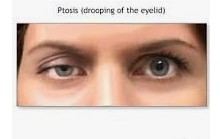 (ref.)
(ref.)
However, it appears that this term can be used in the description of someone's eyelids as a characterization of their inherited natural position.
(ref.) "Take Gisela away, Frau von Herbeck," he said with perfect composure. His entire self-possession was most striking in contrast with the passion displayed by the blind woman. The very shape of the man's head and features was calculated to express high-bred repose. His
drooping eyelids veiled his glance , and made it unfathomable , and his slightly aquiline nose looked as if chiselled on the face , which , although not full , never revealed the play of a single muscle .
(ref.) Wilde's own drooping eyelids have been frequently remarked upon: they were satirized in Aubrey Beardsley's illustrations to Salome.
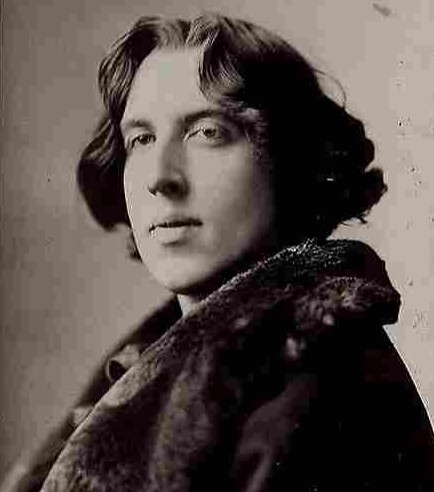
Oscar Wilde
(ref.) He had drooping eyelids as if he'd just awoken from slumber that gave him an aura of sensuality. He was older than she would have liked, no longer a young ...

